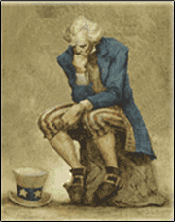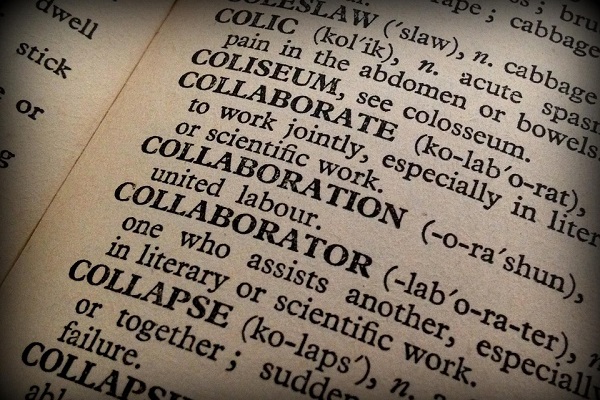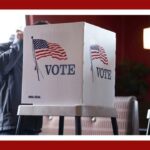
–>
November 25, 2022
Some people say using your mind makes you “reasonable” — but most people, I think, use their minds to chase what they want. This would explain the arguments that go nowhere, the evidence that gets buried; the mistakes that are never retracted, the discussions that turn into loose words and slander, the armies of pundits and “experts” overwhelming us with talking points we can’t verify, or oftentimes even remember, but the conclusions we agree with. The women who say, “But why are you yelling” when you’re winning and you’re not yelling.
‘); googletag.cmd.push(function () { googletag.display(‘div-gpt-ad-1609268089992-0’); }); }
In the public sphere, we’re less likely to be scientists than to be plaintiffs or defendants. We pick a path in life and then put our brains into chasing it, and then try to justify it. Our cultures, our tastes, our levels of wealth and intelligence lead us one way or another, and when we find our way, we fight for it. Some of us are right, and others are wrong; some are honest, and others are fakes. All of us are invested.
This might explain why so many good words have been ruined lately. Words are only tools, after all — and if they were created by our ancestors, they can be deranged by our grandchildren. A new ruling class with a new plan for society means new ways of thinking about things and new ways to talk about them. New words are almost impossible to make popular, so we take old and popular words and twist them. Listed below are several words I miss, which have completely new (and many times opposite) meanings…and tell us a lot about the people who run things.
Love, as used by the media-owning class, now means an almost total disregard for sexual ethics, an abandonment of one’s borders, a locking up of fathers and children to protect the willfully obese. Hate now means affirming gender roles, having basic beauty standards, not teaching pre-schoolers about anal, and, if you’re white, being proud of your ancestors. If you fall into this category, you’re what they call a “bigot,” which is supposed to mean somebody who can’t handle different opinions but today means someone who doesn’t agree with their opinions — an almost comical reversal, which nobody appreciates less than H.R.
‘); googletag.cmd.push(function () { googletag.display(‘div-gpt-ad-1609270365559-0’); }); }
Other words I miss are unity, justice, and patriot. Unity, a word that once meant a grassroots spiritual bond among people — a sense that we were going somewhere together, and we liked where we were going, and even if it meant we were going to die, we would at least go down together — now means half the country gets locked out of business and social media if they contradict the narrative; that one party has control of all the institutions; and that the needs and fears of the majority take a backseat to an unholy patchwork of foreigners, failures, and deviants. By the new rules of unity, there can be no natural unity. There are only oppressors and oppressed, and the so-called oppressed “minority” find their unity in the hatred of the so-called oppressor majority — a never-ending stream of frivolous grievances, which are termed “justice.”
Justice has always been slippery and gets defined by each locality its own way. But there were always general rules, and now justice means what it has never meant: a total disregard of evidence; a jumping to conclusions based on race or sex or gender; a movement against law and order in general; a classing of criminals as saints and cops as criminals. When a cop shoots a criminal, it’s “white supremacy.” When a criminal kills a kid, it’s called “statistics.” The former is an injustice and considered America’s fault. The latter, I guess, is like the weather.
“Patriot” has gotten the same treatment as “nationalist,” which is to stand both on their heads. A nationalist, a person who loves his ethnicity and sees in his countrymen a kind of familial resemblance, who wants them to have their own identity, with their own particular way of life, and for them to be successful and have a home of their own, where they can be themselves and flourish without anybody stepping on them, is now defined as somebody who hates other ethnicities and nations; who stands by his country, right or wrong; who has no sense of ethics other than his own tribe’s well-being; and who thinks of other tribes as less worthy, and maybe even less human, than his own. In a sane world, this would apply to people who jump to conclusions in a racial controversy, but the terms here are never applied equally. The left wing applies them for itself and against us — always.
A patriot used to mean a man who stood up for the good of his country, and when the left wing is describing itself, a patriot is a person who corrects it when it’s gone off-course. Now it means a man who stands against the good of his country. When a right-winger is a patriot, he’s a secessionist. He sides neither with the majority nor with the institutions of his country, but with himself and a few other violent malcontents. A total contrast to the Founding Fathers, he represents an uneducated yahoo minority, is oftentimes willing to commit acts of arson and terrorism, and is always a racist — even if he’s a black Cuban like Enrique Tarrio, and he’s only defending law-abiding citizens from violent white anarchists. There’s no longer a one-word term for a man who loves his country and fights for it.
What of privilege? It used to mean a minority doing something the rest of us couldn’t. This could be corrected by getting rid of the privileges. Now it means most of us enjoy a life that the minority can’t — something that happens in every healthy society, and can be corrected only by granting actual privileges to the minority. I’ll add here that “minority” doesn’t mean what it used to, either. It used to mean somebody who lacked power, and because he lacked power, he was abused. But if you cross a so-called minority today and he pulls the minority card, you’ve already lost — the argument and possibly your job. That’s a hallmark symbol of power.
I used to love each one of these words, but now all of them leave a bad taste in my mouth, and even when they’re used rightly, I have a hard time using them politically.
‘); googletag.cmd.push(function () { googletag.display(‘div-gpt-ad-1609268078422-0’); }); } if (publir_show_ads) { document.write(“
But who am I to complain? God rarely (if ever) sends us unmixed goods or evils. Before we could twist words around so badly, we never knew who was with us or against us so easily. Now a bad use of the word “hate” is like sagging pants on an ex-con, or green hair on a fat lady: we not only know who stands where, but whom to trust, and for what. For that, at least, we should thank Him.
Jeremy Egerer is the author of the troublesome essays on Letters to Hannah, and welcomes followers on Substack. Email him at [email protected] to get a free copy of his essays, or to see what he says next.

Image via Max Pixel.
<!– if(page_width_onload <= 479) { document.write("
“); googletag.cmd.push(function() { googletag.display(‘div-gpt-ad-1345489840937-4’); }); } –> If you experience technical problems, please write to [email protected]
FOLLOW US ON
<!–
–>
<!– _qoptions={ qacct:”p-9bKF-NgTuSFM6″ }; ![]() –> <!—-> <!– var addthis_share = { email_template: “new_template” } –>
–> <!—-> <!– var addthis_share = { email_template: “new_template” } –>







